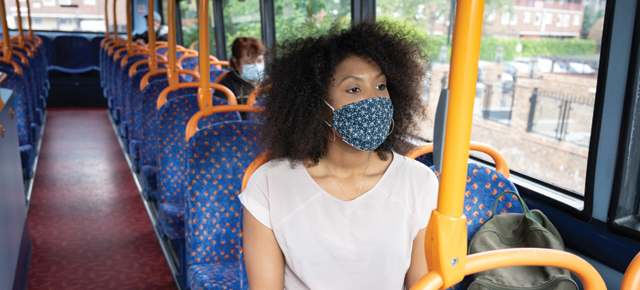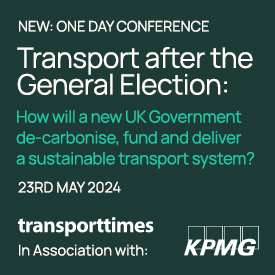Passenger numbers recover to 44% in July-September quarter. Chris Cheek offers his analysis

A strong recovery in bus patronage during the summer quarter has been confirmed by the publication of the latest quarterly patronage statistics by the Department for Transport. They show that demand fell by 55.9% across Great Britain during the quarter ended September 30. The period covers the period of easing of the lockdown, though with social distancing applied and advice still to avoid public transport use where possible.
The DfT’s provisional seasonally adjusted estimates put total demand during the 12 weeks at 522.3 million passenger journeys, compared with 1,184 million in the same quarter in 2019, a fall of 55.9%. However, there was a strong recovery from the previous quarter, which had seen demand plunge to as low as 209 million journeys.
The figures show that demand fell in all areas, with Wales seeing the largest decline, of 68.9%. Next came Scotland (60.8%) the English Shires on 58.3%, London (56.8%) and the PTE areas (50.1%).
Rolling Year figures
The provisional figures for the whole year to September 30 show total demand for bus services in Great Britain at 2,946.8 million passenger journeys, 38.4% lower than the same figure in 2019.
Largest fall came in Wales, a 43.6% decline, followed by Scotland (39.6%), the Shire areas (38.9%) and London (38.2%). The lowest fall was in the PTE Areas (27.6%).
Fares
The latest fare indices, also published by DfT, show that in the year to September, bus fares rose by an average of 0.8% after taking account of inflation, compared with September 2019.
There were falls in two areas – London (0.5%) and Wales (a barely perceptible 0.1%). However, there were rises in Scotland and the English Shires (1.7% each) and the PTE areas (1.1%).
Looking back over the last five years, fares in the capital have fallen by 3.7%, thanks to Sadiq Khan’s fares freeze. Elsewhere there have been real-term rises, including 8.8% in the English Shire areas, 4.6% in Scotland, 3.5% each in the PTE areas and Wales.
Comment
There’s no getting away from the fact that these numbers are still dreadful. There are two positive things to say, though: the first is that they are a great deal better than the previous quarter.
The fact that this happened is a tribute to the efforts of operators to deliver positive messages, reconfigure services and drive up cleanliness standards. We also have to acknowledge too the role of government in providing the Covid Bus Service Support Grant (CBSSG) in helping to keep the buses running.
In fact, the separate figures from the DfT show a steady pick-up in demand as the quarter progressed. After starting the quarter at between 30 and 38%, numbers reached the high fifties in mid-September. After the end of the quarter, this proportion was sustained during most of October before the second wave struck and the second lockdown got under way in November.
This recovery, pretty much to 60% of previous levels, came despite all the uncertainties of mask-wearing, social distancing and ongoing government advice to avoid using public transport where possible
The second positive thing to say is that this recovery, pretty much to 60% of previous levels, came despite all the uncertainties of mask-wearing, social distancing and ongoing government advice to avoid using public transport where possible. This might bode well for a future in which those negative factors are eased, and life generally begins to get back to something like normal.
The big question, though, is how soon that might happen and what the ‘something like normal’ might look like. The pandemic has already driven profound changes in our working lives, shopping and leisure habits and the way in which we teach our students.
Many of these changes are likely to endure, and all will affect our need to travel, so reducing the overall market for travel. The battle will be to capture as large a share of the remaining demand as possible. It promises to be a hard-fought contest.
ABOUT THE AUTHOR: Chris Cheek has worked in the public transport industry for over 46 years, the last 31 as an analyst and consultant. He is Managing Director of Passenger Transport Intelligence Services (PTIS). To read more about Chris – CLICK HERE.
Get the latest news delivered to your inbox. CLICK HERE to subscribe to our e-newsletter.







